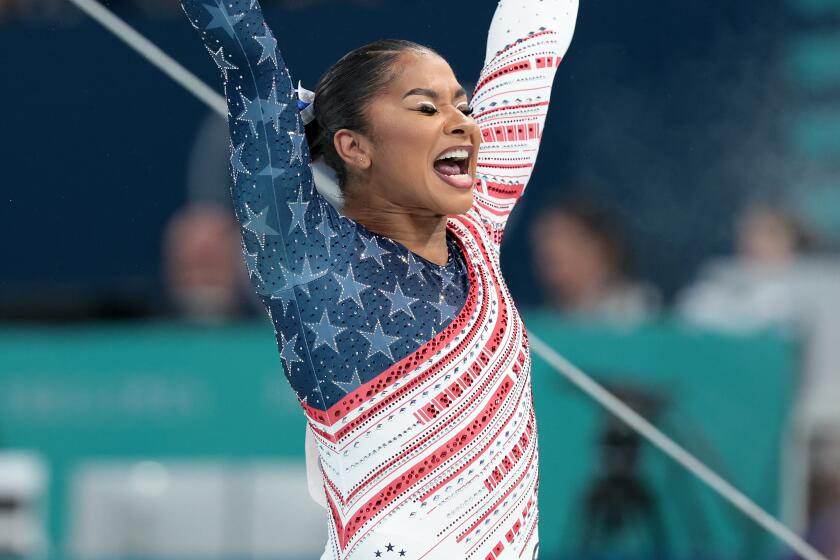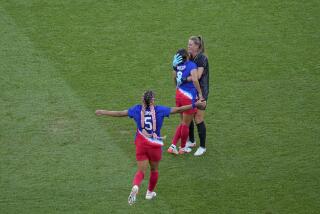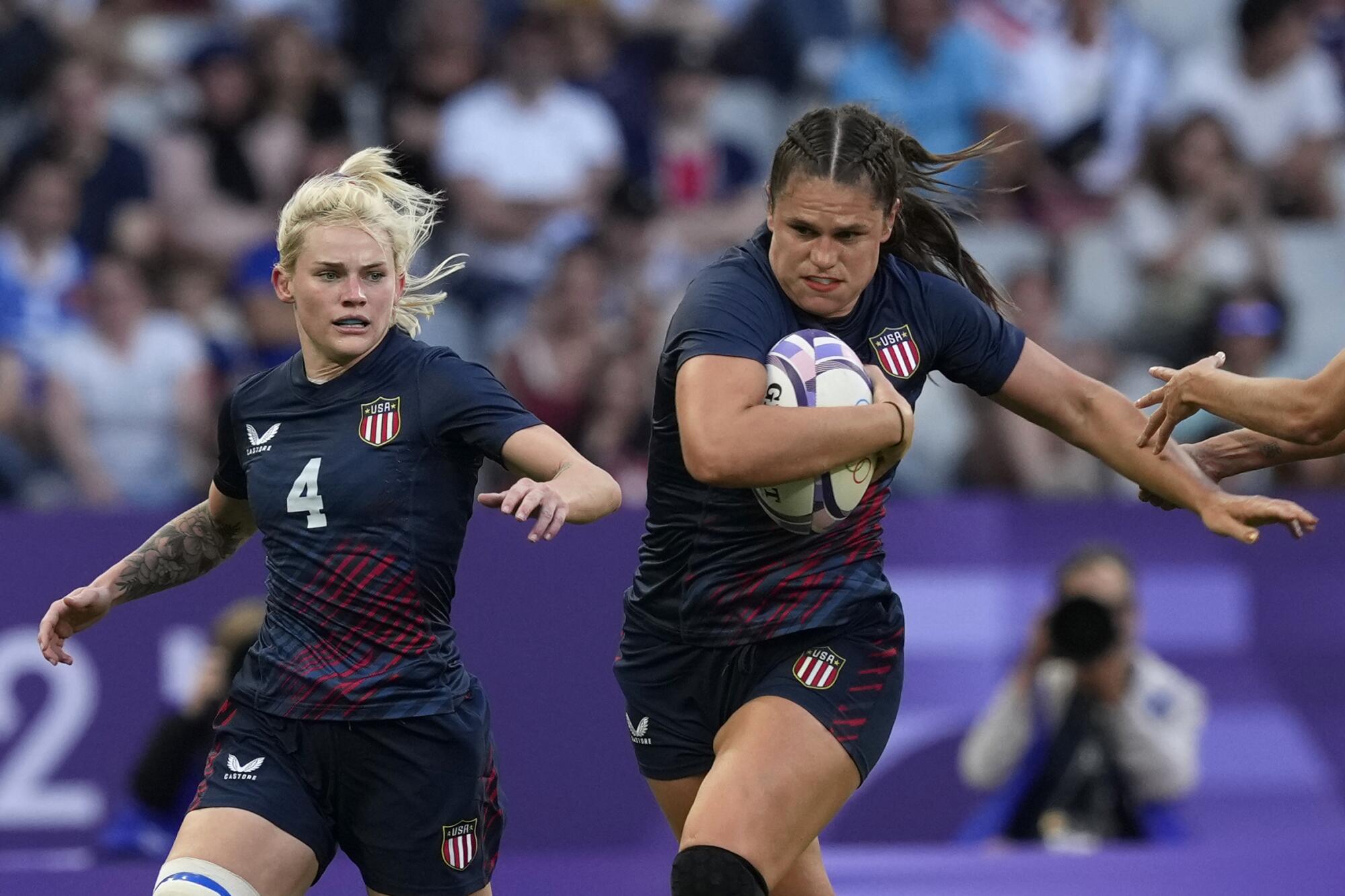
- Share via
PARIS — The Americans’ stunning bronze-medal win in women’s rugby sevens Tuesday was so big even Ilona Maher didn’t know what to say.
And given that she’s the rugby player with the largest social-media following in the world, for Maher to be saying little says a lot.
“It hasn’t sunk in yet,” Maher said after the U.S. overcame a five-point deficit to Australia in the closing seconds to win on Alex “Spiff” Sedrick’s nearly 100-yard dash to a try, followed by her two-point conversion kick after time had expired. “I’m so tired but I’m so excited.”
Maher, a two-time Olympian who chased Sedrick across the goal line, has attracted a massive social-media following with viral videos that champion body positivity, women’s empowerment and offer humorous takes on her life as a world-class athlete.
Since March, she has more than doubled her audience on TikTok and Instagram to a nearly combined 4 million followers, which has put a spotlight on a sport that has struggled to find a foothold in the U.S. Those figures are continuing to climb now that she’s the most recognized player on the third-best team in the world. Late Tuesday night, Instagram posts of Maher and Sedrick celebrating and waving a U.S.A. Olympic banner each got more than 220,000 likes.
“It’s been enlightening just to try to break down the barriers to what people view athletes as,” Maher said. “We put athletes on a pedestal, think of them as indestructible and very strong. But also, athletes are human.
“For me, it’s just showing how human we are. I do that not only through talking about mental health and the sad days, but also being authentic in the other emotions we feel. Whether it’s the awkwardness, being weird or the fun times, the down times, I think just being really authentic, people really resonate with it.”
Social media can be a double-edged sword for athletes. It gives them a chance to promote themselves, their teams and their sports, but it also opens them up to criticism, personal attacks, hate and even racism. As a result, many avoid what Maher has embraced.
“I took a big break from social media and I stopped posting as much just because it was just stressing me out more than it was helping me,” said Nevin Harrison, a gold medalist in women’s canoe sprint three years ago in Tokyo. “But seeing someone like Ilona posting on Instagram, I’m sure a lot of girls see her and they say ‘wow, she’s really strong too and she looks gorgeous. She’s still feminine and sexy but she’s still got big muscles.’
“They see that they can become strong and they can become buff and still be gorgeous.”
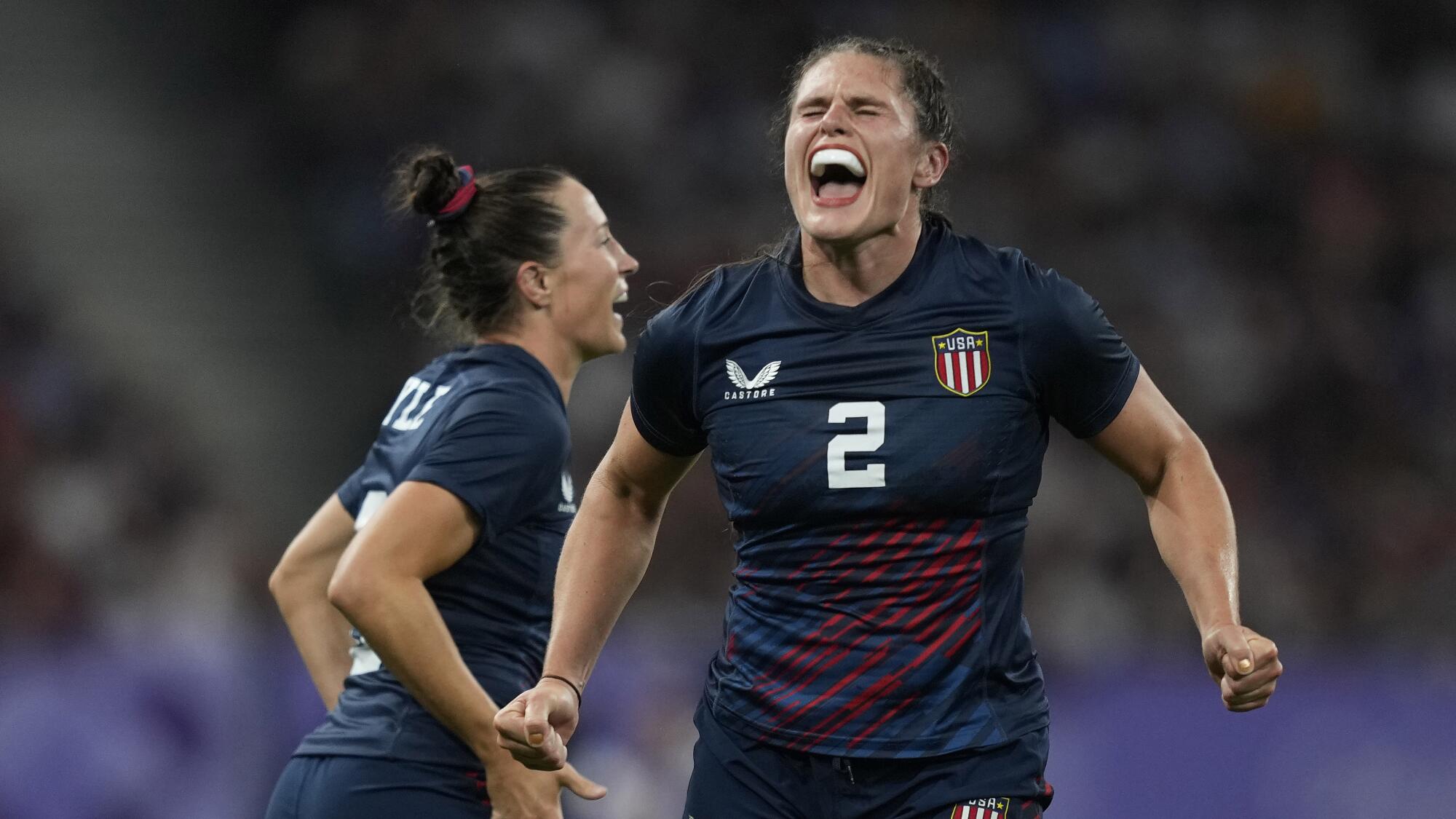
Maher, 27, first drew widespread attention on social media during the Tokyo Olympics, when the COVID-19 pandemic emptied stadiums and arenas and limited interaction between the athletes, media and fans. Her videos of life in the Olympic village broke through those barriers, showing her and teammates testing out the cardboard beds, explaining the difficulties of flirting with other Olympians and trying the deep-fried cheese in the cafeteria.
Many of the posts also have a serious side, however, and her unique, impassioned takes on mental health and other topics won Maher, who is a nurse in San Diego when she’s not playing rugby, a TED Talk platform.
She expanded her repertoire in Paris, mixing videos of her practicing her run onto the field and struggling to get out of a bean-bag chair with others featuring guest appearances by tennis star Coco Gauff, one of the U.S. flag-bearers in the opening ceremony, and former NFL player Jason Kelce.
They’re sometimes goofy, sometimes witty and sometimes heartfelt. But they’re never boring.
UCLA star Jordan Chiles put on a show during the Paris Olympics, getting the crowd on its feet and inspiring her teammates during their gold-medal run.
And if the videos have succeeded in pulling the curtain back to show what the life of a world-class athlete is like, they have also introduced a U.S. audience to rugby — especially the seven-on-seven game played in the Olympics, which is faster and shorter than rugby union, the more common version of the sport.
“The sport has a lot of stereotypes around it. It’s something that I’ve tried to debunk, if that’s the right word,” said Maher, who played field hockey, basketball and softball before switching to rugby at age 17. “Rugby’s a very physical game. But I also think you don’t have to sacrifice your femininity or your beauty playing it. That’s a little bit why I wear the lipstick when I play.
“As women, a lot of times our body has been this object to be looked at and to be objectified and I hate that there’s girls out there that feel like they don’t have a purpose for their body and so they want to change it constantly. To get into sports and a sport like rugby, a sport like canoe and track and field gives your body a purpose, shows what it can do and what it’s capable of. It’s not just something that is for others to judge.”
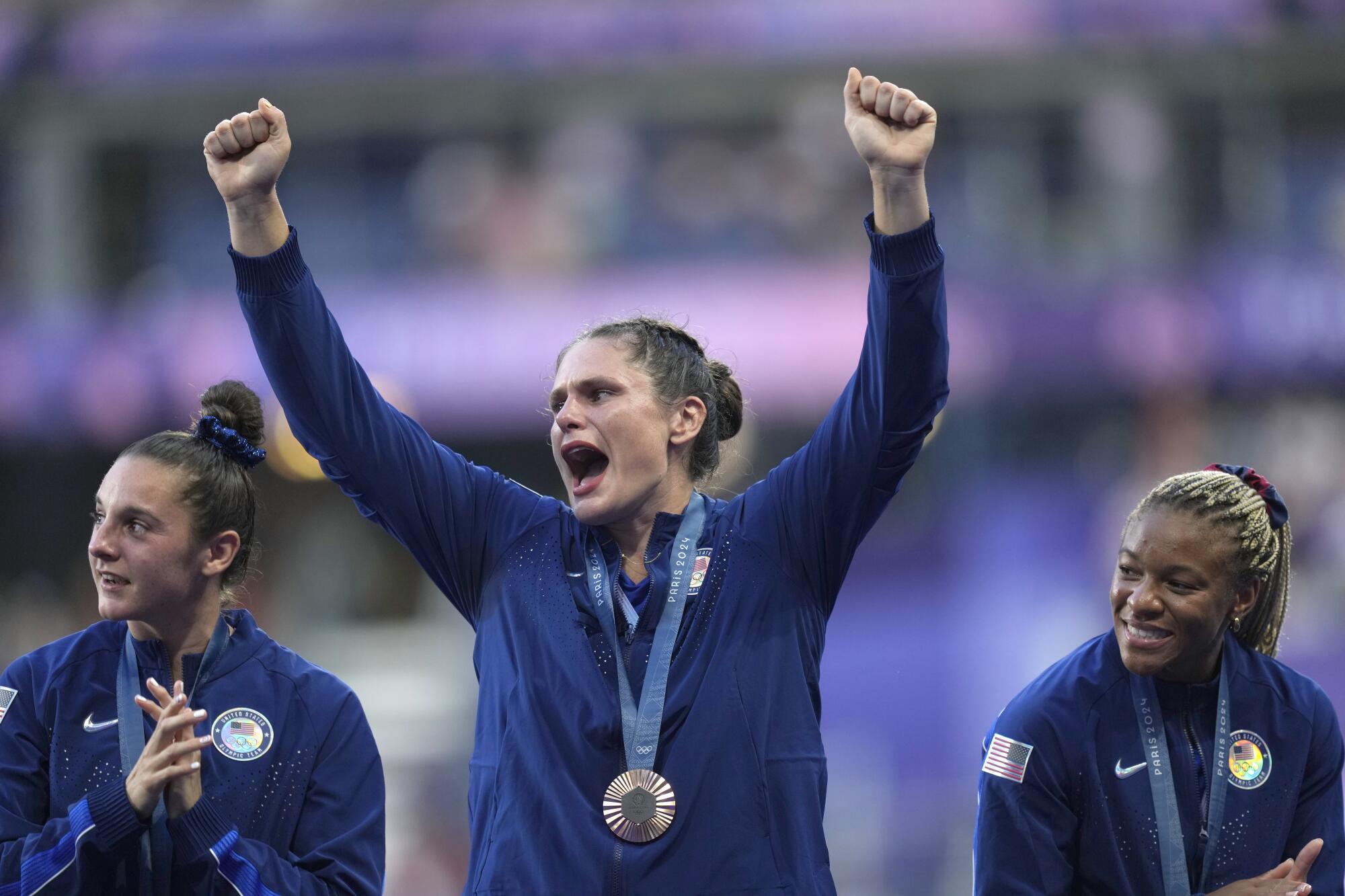
But Tuesday’s upset over one of the pre-Olympic favorites, which gave the U.S. its first-ever medal in rugby sevens, not only expanded Maher’s platform, but also gave the sport at least one powerful and deep-pocketed supporter. Less than two hours after the final game at a sold-out Stade de France, USA Rugby sent out a photo of Maher, bronze medal hanging from her neck, with Michele Kang, a businesswoman and investor who owns women’s soccer teams in England, France and the U.S.
Kang, the release said, had agreed to donate $4 million to the women’s team to fund its preparations for the 2028 Olympics in Los Angeles.
“I hope it means we get more games in stadiums like this, that we get more money and funding for the women’s game,” Maher said. “We deserve it. We need more girls in the U.S. trying rugby and seeing what it can do for them.”
More to Read
Go beyond the scoreboard
Get the latest on L.A.'s teams in the daily Sports Report newsletter.
You may occasionally receive promotional content from the Los Angeles Times.


